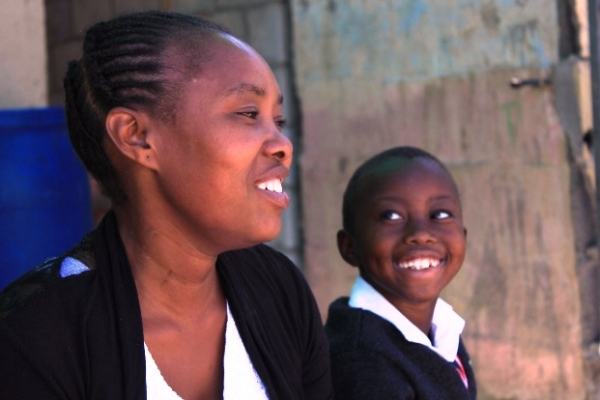Needed: black bone marrow donors

South Africa needs black people to donate their bone marrow. According to the South African Bone Marrow Registry (SABMR) there are more than 67,000 donors and only 4,100 are black.
Romy Saitowitz, public liaison for SABMR, says that thousands of children and adults are diagnosed with a blood disease every year. “It is not impossible to get a donor from someone in a different ethnic group but the chances become one in a million [as opposed to 1 in 100,000 within an ethnic group].
“Although family members, particularly brothers and sisters are generally most suitable, only 30% of patients can find a match in their family; another 70% must find suitable donors through registries,” says Saitowitz.
Bone marrow transplants help to treat and cure some life threatening illnesses including leukaemia, bone marrow failure, and some genetic blood and immune system disorders. An example is sickle cell anaemia. These illnesses can affect anyone, no matter their age, gender, religion or ethnicity. Although bone marrow transplants are not always successful, they give the person their only chance of recovery.
Tamara Dayi’s seven-year-old son, Siphiwo, is one of thousands South Africans waiting for a bone marrow donor. Siphiwo has suffered from leukaemia since he was two months old.
“We have to go to the hospital every week so he can get his blood transfusion. I don’t work and sometimes we struggle to find transport money. But I have to make sure I get it no matter what, because he needs it.
“I lost my job because my son needed me constantly and I had to take a lot of days off work. I got fired … [There is] nothing I can do; he is my first priority,” said Dayi.
Unlike many kids his age, Siphiwo spends most of his time at home or in the hospital.
“My son can’t even attend school like other kids because he would sometimes miss the whole week of school because he is sick. Sometimes he would go to school fine and [then] I would get called in by his teachers telling me to come fetch him because he has started vomiting and having diarrhoea.
“It’s not nice raising a child who is sick and you can’t do anything to help your child; can’t even afford to buy him healthy food. To know that my son might die before I do is not right. It’s not supposed to be like that,” said Dayi.
Nontobeko Mpeqeka from the Sunflower Fund says one of the major problems in recruiting black donors is a cultural belief that if you donate anything from your body your ancestors will no longer recognise you.
To find out if you are a suitable bone marrow donor, call The Sunflower Fund on the toll free number 0800 12 10 82. The fund is open weekdays 08:30 to 16:30.
Support independent journalism
Donate using Payfast

Don't miss out on the latest news
We respect your privacy, and promise we won't spam you.

This article is licensed under a Creative Commons Attribution-NoDerivatives 4.0 International License.
